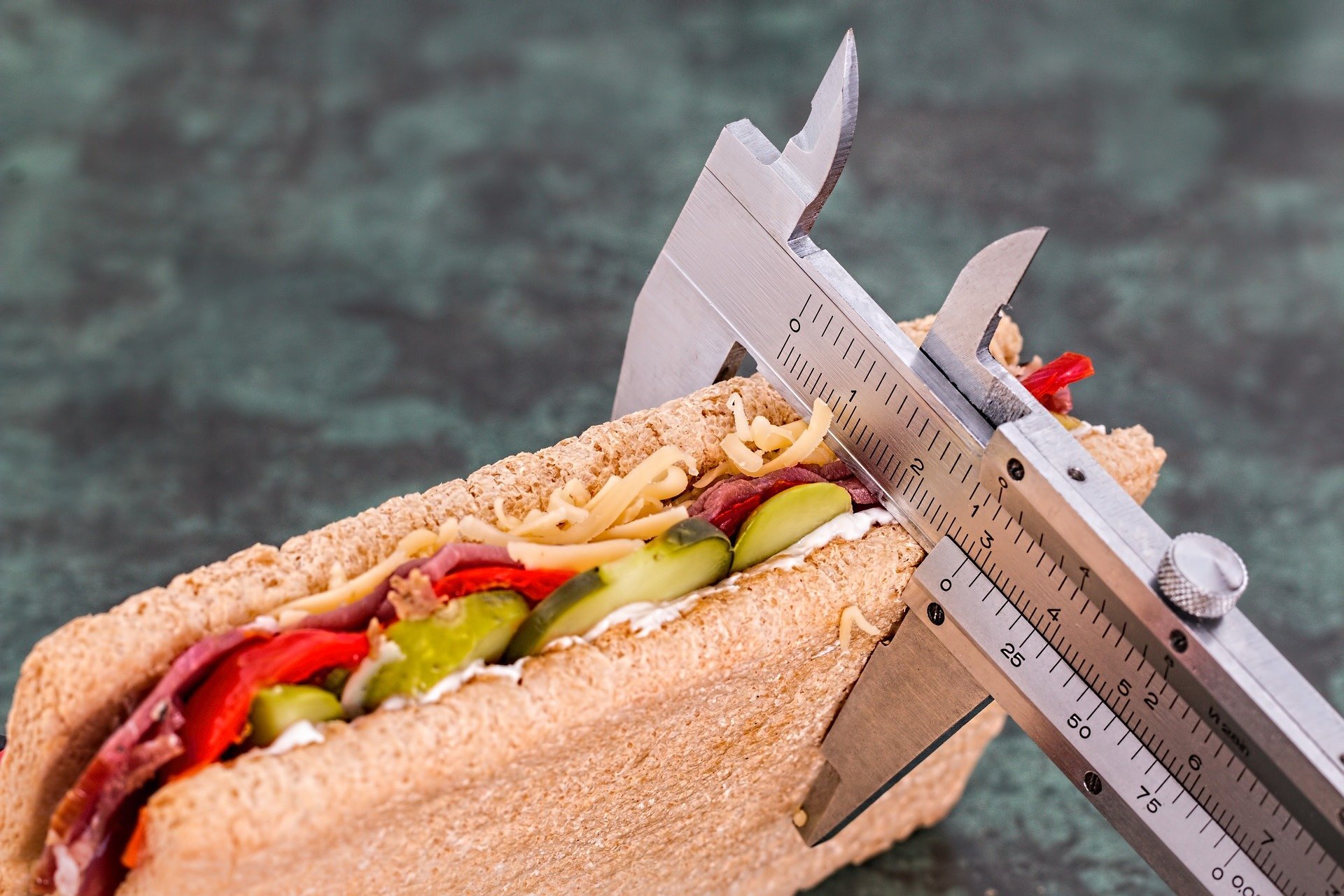Don't fixate on calories
Since the dawn of the 20th century, almost all weight loss guidelines have used calories as a simple measure of how much energy we’re consuming from our food. But according to Giles Yeo, a Cambridge University research scientist who studies the genetics of obesity, there’s one problem: not all calories are created equal. Yeo argues that what really matters is not how many calories a particular food contains, but how that food is digested and absorbed by your body.
Calorie counting began with an American chemist in the 19th century called Wilbur Olin Atwater who calculated the calorie numbers for different foods, by working out the total energy intake you get from them. But his calculations never took into account the energy it takes our cells to metabolise food in order to use it. This is important. It’s why for example a calorie of protein makes you feel fuller than a calorie of fat, because protein is more complex to metabolise. For every 100 calories of protein you eat, you only ever absorb 70.
So we need to consider the type of food we’re eating, rather than fixating purely on the calorie content. You could be aiming to eat 800 calories a day, but how much energy your body actually absorbs will depend on whether you’re eating sugar, celery, or steak. Sometimes life demands a banana, and sometimes life demands a chocolate bar. But you can make a better practical choice in those situations by considering how the body processes food. It takes a lot longer to digest food elements like protein and fibre, so you absorb less of those calories, so if you choose a chocolate bar that’s higher in nuts or dry fruits, that will make it a better chocolate bar.
Is it still appropriate for doctors to use BMI?
An obese person could be described as someone who is carrying too much fat, so that it begins to influence their health. But then the question is, how much is too much fat? Your fat cells are like balloons, they get bigger when you gain weight, they shrink when you lose weight. But everyone’s fat cells expand and contract to different amounts, so everybody has a different safe, fat-carrying capacity. For example, East Asians cannot get too big BMI-wise before they increase their risk of diseases such as type 2 diabetes, because they have a lower safe fat-carrying capacity.
BMI is very useful for looking at population trends, because it’s free to measure, and you only need your height and weight. But at an individual level, this is not useful to predict health because it doesn’t take into account genetic and ethnic differences in fat capacity. You could be a rugby player, or the same size as a rugby player, and be all fat, and yet have the same BMI. So it can be argued that healthcare professionals should consider the whole, rather than simply BMI itself.
A lot of people consider obesity as a lifestyle disease; they perceive that being larger than someone else comes down to choice, when this is not the case. For many people, it’s more difficult to say no to food purely because of their genetics as opposed to tackling a lifestyle intervention.
Research shows that more than 1,000 genes are linked to obesity, and the vast majority of them influence pathways in three different parts of the brain that ultimately influence your feeding behaviour. One is the brain’s fuel sensor called the hypothalamus, then there’s the part of the brain that senses how full you get, and then there’s the hedonic part of the brain that makes eating feel good. All of these regions speak to one another, and some of these 1,000 genes influence these pathways. A mutation that causes a slight insensitivity in your brain to how full you are could influence how much you want to eat, making it more difficult to say no to temptations. For example, one in 330 people in the UK have mutations in a particular pathway called the leptin-melanocortin pathway, which renders your brain slightly less sensitive to how much fat you’re carrying.
Obesity isn’t solely genetic.
The heritability of body weight – the percentage of the trait that is down to your genes – is a range, which lies somewhere between 40 and 70%. This large variance is influenced by socioeconomic class and subsequent food insecurity. Genetically, there’s no difference between people who are poorer and those who are richer – it’s an accident of birth. But because of your socioeconomic situation, your risk of obesity can jump from 40% to 70%. It shows that if we manage to cure poverty, childhood poverty in particular, we can drop the heritable risk of obesity from 70% to 40% without even touching the biology of the system.
The effectiveness (or not) of exercise.
In and of itself, exercise is not effective for weight loss. It is in principle possible to lose weight through exercise – Tour de France cyclists eat at least 5,000 calories a day and still lose weight during the three-week race. The problem is most of us mere mortals don’t exercise anywhere near enough for this to be effective. It is, however, useful for weight maintenance after you have achieved weight loss. So staying active on your bike and running – for instance - will help you stay fit, and maintain weight.
Extracts taken from David Cox from https://www.theguardian.com/

